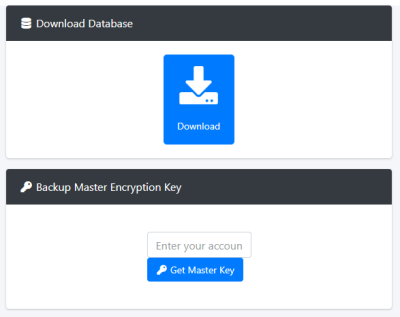meta data for this page
Backups
As ITFlow will hold essential data about you and your clients, it is essential that you take (and test) regular nightly backups, in addition to on-demand backups before & after performing updates.
Summary:
1. You should regularly back up the entire Virtual machine running ITFlow.
- The terminology for this may differ depending on your virtualization platform, but essentially you want an image/snapshot of the entire VM.
- This allows you to easily capture & restore the files & database.
2. You should retrieve and securely store your master encryption key
ITFlow is split into three main areas. If you are unable to backup the entire VM, you'll need to backup the files & database individually
- Files
- Database
- Master Encryption key
Files
- You should regularly take copies of the PHP files that power ITFlow.
- As updates are released, these files may reference new database fields. Your file backup should be taken at the same time as your database backup to prevent running into strange issues (e.g. pages failing to load).
- Additionally, ITFlow stores any uploaded files in
/uploads/. This includes images, PDFs, etc.
Database
- Your MariaDB database will contain all information entered into ITFlow.
- Each database update will change the schema - restoring an older backup may fail or not work as intended as fields will have been added/removed
- It is essential that you back up the database regularly, and perform an on-demand backup before and after performing updates.
- You can take one-off database backups at
/admin_backup.php- note these must be restored via the command line/phpMyAdmin - currently there is no built-in restore utility.- NOTE: Older installations may reference
/settings_backup.phpto take one-off database backups.
- Recommended: You can automate backups using the mysqldump / mariadb-dump command
Master Encryption key
- ITFlow allows you to store login credentials for assets, websites, etc.
- Usernames and passwords entered are encrypted in the database using a master encryption key. This key is never stored in plaintext on the disk or in the database. You'll need this key if you ever need to recover encrypted passwords from the database.
- You can retrieve your key at
/admin_backup.phpby entering your account password. The key should never change, so only needs to be backed up somewhere safe once.- NOTE: Older installations may reference
/settings_backup.phpto retrieve the key.
